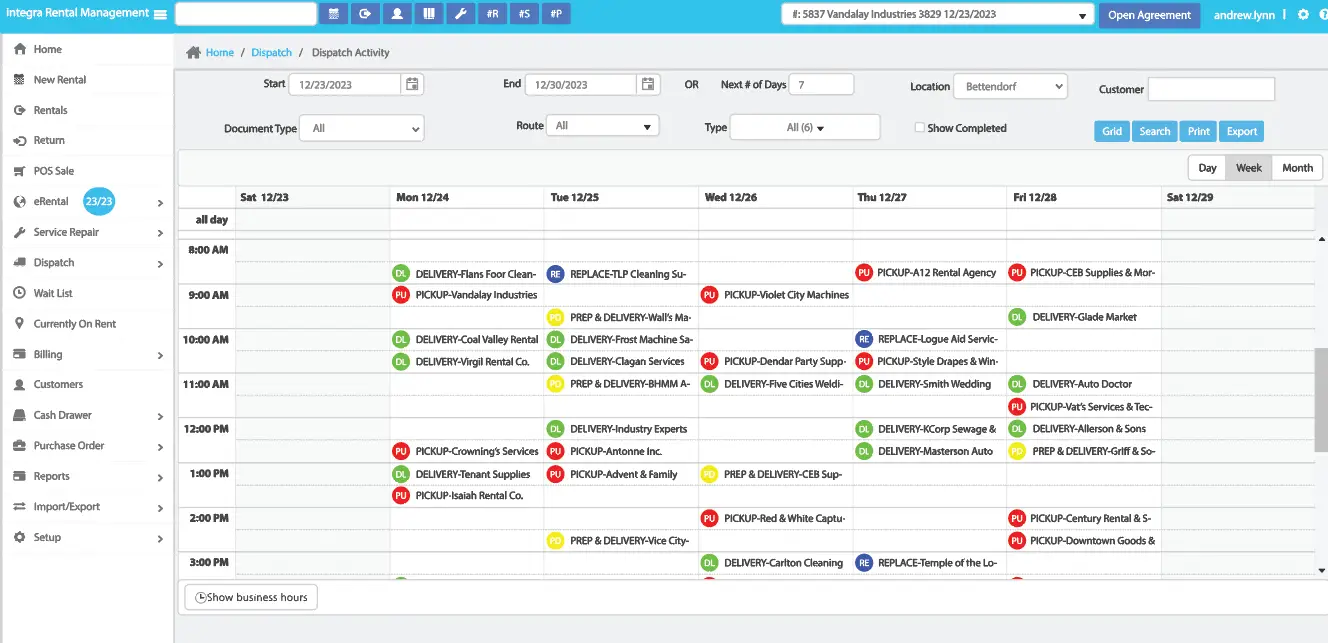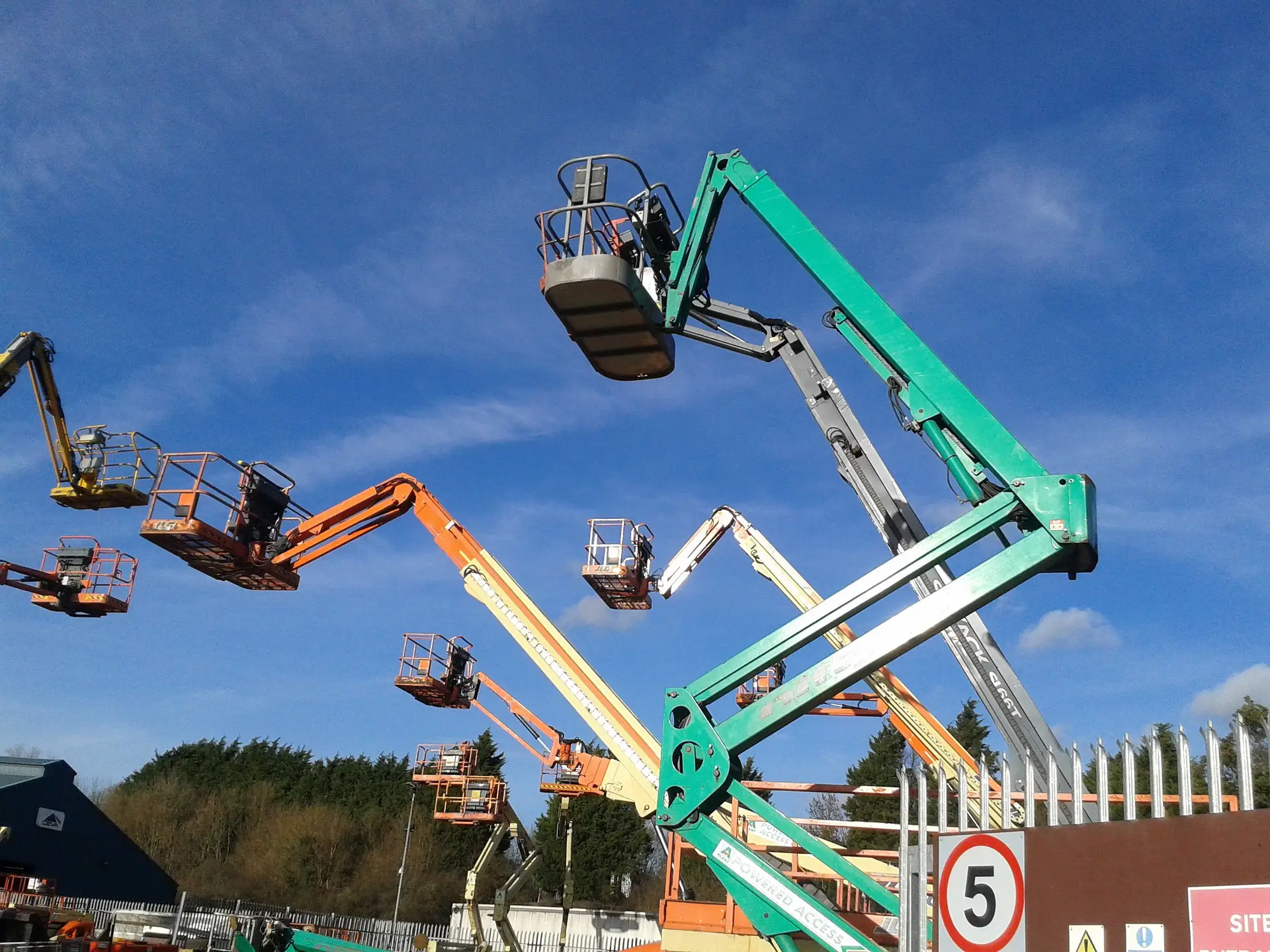
Top 10 Best Practices for Rental Fleet Management
Effective fleet management is the backbone of a successful construction equipment rental business. With the dynamic nature of the industry, adopting best practices for fleet management becomes crucial. This blog explores the top 10 best practices that equipment rental businesses can implement to optimize their fleet management processes. From strategic planning to leveraging cutting-edge technology, these practices ensure efficiency, safety, and financial stability.
1. Strategic Asset Planning
Strategic asset planning lays the foundation for a well-managed fleet. Rental businesses must align their fleet composition with their overarching business strategy. Anticipating project needs and planning the fleet accordingly helps in optimizing resources and reducing unnecessary expenses. Utilizing advanced fleet management software, like integraRental, can greatly assist in analyzing historical data and predicting future equipment requirements.

2. Routine Equipment Inspections
Regular equipment inspections are the cornerstone of proactive fleet management. Conducting routine inspections allows businesses to identify potential issues before they escalate, minimizing downtime and preventing costly repairs. Leveraging fleet management software streamlines the inspection process, ensuring that every piece of equipment is thoroughly examined and documented. integraRental lets you schedule maintenance for your equipment, based on the number of hours your equipment has been running so you can stay on top of scheduled maintenance.
3. Implement Preventative Maintenance Programs
Preventative maintenance is a key practice to extend the lifespan of your fleet. Establishing and adhering to preventive maintenance programs reduces the risk of unexpected breakdowns. Fleet management software can automate maintenance schedules, sending timely reminders for tasks such as oil changes, filter replacements, and component inspections, facilitating a proactive approach to equipment upkeep.
4. Utilize Telematics Technology
The integration of telematics technology revolutionizes fleet management. Telematics systems provide real-time data on equipment location, usage, and performance. This technology not only enhances fleet monitoring but also facilitates data-driven decision-making. integraRental, our equipment rental software, is fully integrated with RoviTracker, an award-winning leader in equipment telematics. Businesses can optimize routes, monitor fuel consumption, and ensure that equipment is utilized efficiently.

5. Equipment Tracking and Documentation
Comprehensive documentation is essential for effective fleet management. Keep detailed records for each asset, including maintenance history, usage patterns, and depreciation. Fleet management software, such as integraRental, simplifies the tracking and documentation process, allowing businesses to access critical information at their fingertips. This data-driven approach supports informed decision-making and compliance with industry regulations.
6. Comprehensive Staff Training
Investing in comprehensive staff training contributes significantly to efficient fleet management. Well-trained personnel are essential for safe and proficient rental equipment operations. Regular training updates, facilitated by fleet management software, keep the team informed about the latest industry practices and safety guidelines. This results in reduced accidents, minimized equipment damage, and increased overall efficiency.
7. Efficient Fleet Utilization
Optimizing fleet utilization involves analyzing usage patterns and adjusting equipment rental rates accordingly. Identifying high-demand equipment ensures it’s readily available when needed. Fleet management software provides insights into equipment utilization rates, helping businesses make data-driven decisions on fleet optimization. This ensures that each asset contributes to the business’s profitability.

8. Regular Equipment Upgrades
Staying current with industry trends through regular equipment upgrades is a best practice for fleet management. Newer equipment often comes with improved efficiency, safety features, and lower maintenance requirements. Fleet management software aids in tracking equipment age and performance, facilitating informed decisions on when to upgrade to ensure a competitive edge in the market.
9. Responsive Customer Service
Responsive customer service is a cornerstone of successful fleet management. Clear communication and support during the rental process build trust and loyalty. Utilizing fleet management software enhances customer service by providing real-time updates on equipment availability, rental agreements, and project timelines. This transparency fosters positive relationships and encourages repeat business.
10. Financial Management Analysis
Regularly analyzing the financial performance of your fleet is critical. Fleet management software streamlines financial management by providing insights into equipment utilization rates, maintenance costs, and return on investment. This data-driven approach helps in identifying areas for improvement, ensuring that the fleet remains a profitable aspect of the business.
In conclusion, implementing these top 10 fleet management best practices empowers equipment rental businesses to navigate the complexities of the industry efficiently. By integrating our cutting-edge fleet management software, integraRental, businesses can enhance their decision-making processes, streamline operations, and ultimately achieve success in a highly competitive market.
Reach out to our team to schedule a free demo of our fleet management software.